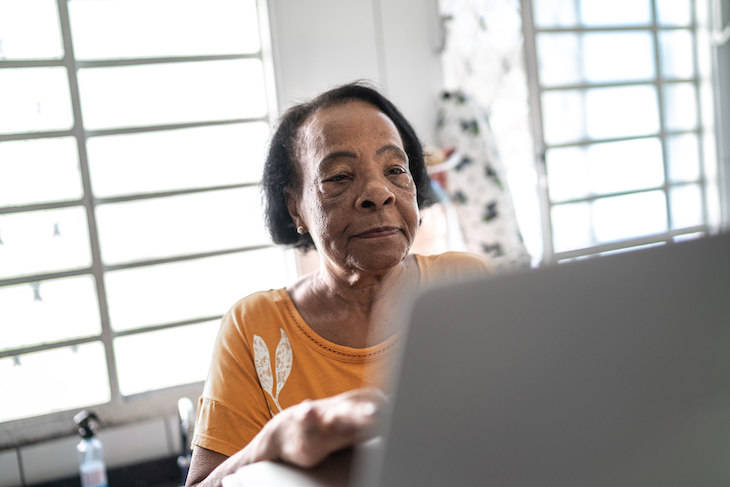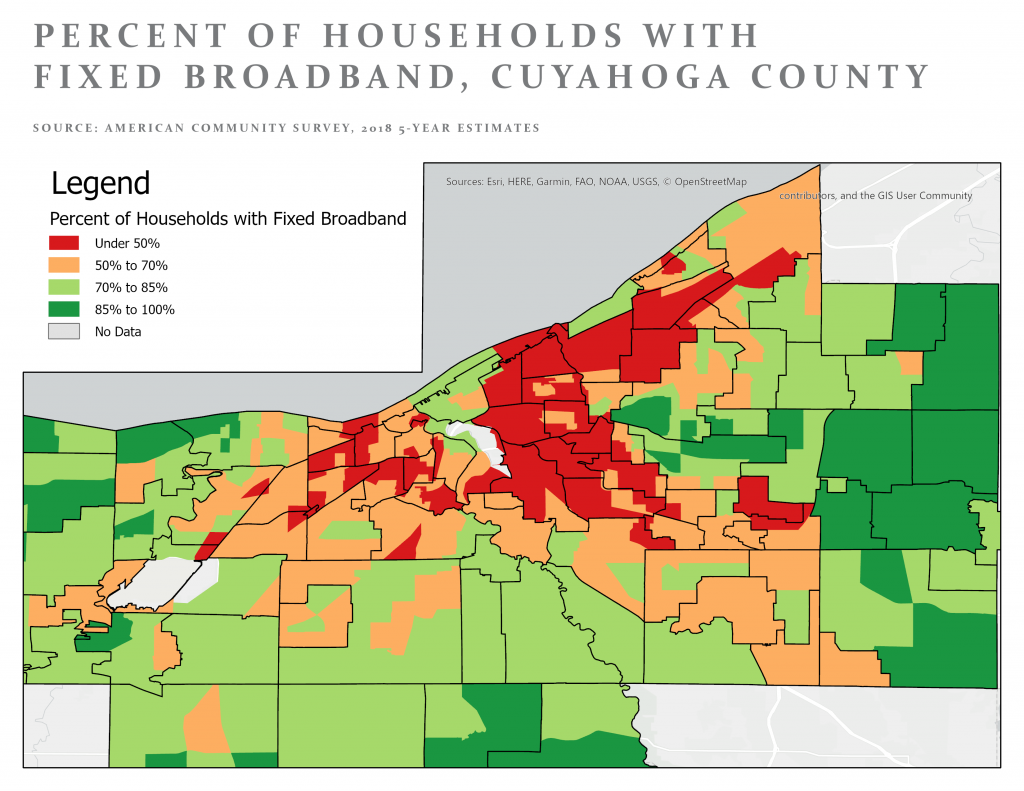Whether we’re looking for directions, accessing our bank account, registering to vote, attending a class or making an appointment for vaccination, our daily lives increasingly depend on an internet connection. The COVID-19 pandemic has pushed us to spend even more time connected to the internet, as schools, work and events have moved online to support physical distancing. Now more than ever, you need an in-home internet connection to participate in society and access vital services. Unfortunately, many people are at risk of being left behind.
Greater Cleveland’s digital divide
Even before the pandemic, Cuyahoga County’s digital divide was a problem. In recent years, Cleveland has been ranked among the worst internet-connected cities in the United States. According to the American Community Survey, more than one in five households in Cuyahoga County have no internet access of any kind, with more than half of Cleveland households that make less than $20,000 completely disconnected from the digital world. Additionally, more than half of Cleveland seniors over the age of 65 have neither a home computer nor internet access.
Bridging the divide
In 2017, the Cleveland Foundation officially launched our Digital Excellence Initiative, a collaborative effort to ensure all residents can successfully participate in the digital world and economy – and to elevate Greater Cleveland’s infrastructure, talent and research in digital technology and innovation. With the onset of the COVID-19 pandemic, this work became even more urgent, particularly for students, seniors and workers.
In July of 2020, we partnered with Cuyahoga County to launch the Greater Cleveland Digital Equity Fund to fill the in-home technology gaps affecting Cleveland households. So far, the fund has raised nearly $4.55 million and distributed nearly $4.14 million. As a result of the fund, an additional $1 million has been provided by private sector groups and professional sports teams. The fund has covered the costs for 5,000 mobile hot spots with two years of unlimited data as well as 4,000 laptops and technical support for students in Greater Cleveland.
The Greater Cleveland Digital Equity Coalition, a group of more than 70 organizations across different sectors and fields, informally helps to guide the fund’s dollars and align local efforts to address the digital divide. In the immediate term, the coalition has focused on quickly meeting the most urgent needs:
- Distributing devices and hotspots via local schools to help students successfully participate in remote learning;
- Supporting a virtual job fair, digital skills training and low-cost computers and internet service for job seekers;
- Providing a technology resource guide, personalized digital navigator services and a senior-focused advocacy agenda for older adults.
In the long term, the coalition is working to ensure all households have adequate computing devices, competitive internet coverage is available throughout Cuyahoga County, and digital skills classes are available to all residents. Learn more about the plans to achieve these goals and the partners driving the work:
- Devices & technology: In partnership with PCs for People as well as neighborhood digital learning centers, public libraries and schools, residents can access affordable computers, hotspots and other devices needed to learn, work and live in today’s digital world. If individuals, organizations and corporations are interested in donating used technology, please contact PCs for People at (216) 600-0014 or e-mail cleveland@pcsforpeople.org.
- Connectivity: Commercial internet service providers like T-Mobile, AT&T, Spectrum and Verizon as well as organizations like DigitalC are working long term to put the infrastructure in place so that every household in Cleveland has affordable, reliable, high-speed internet access.
- Digital skills & support: People can develop skills and access technical support to use their devices and connectivity successfully. Skill building programs, from basic skills to advanced computer classes, are available at trusted places like neighborhood digital learning centers and public libraries. Free lessons and programs can also be accessed online via:
PCs for People offers flat-rate tech support as well as a call center for all customers, while ASC3 Digital Technology Training Center provides a hotline for internet information as well as services for seniors and the community.
- Advocacy and awareness: Multilingual tech resource guides and flyers as well as a coalition of neighborhood digital ambassadors and navigators raise awareness about available resources and advocate for expanded efforts. Cleveland Neighborhood Progress and The Center on Urban Poverty and Community at Case Western Reserve University expand current data on digital inclusion in our community.
If you’re interested in joining this effort or making a donation to the Greater Cleveland Digital Equity Fund, please contact Leon Wilson, chief of digital innovation & chief information officer at the Cleveland Foundation, or Baiju Shah, senior fellow for innovation at the Cleveland Foundation.

